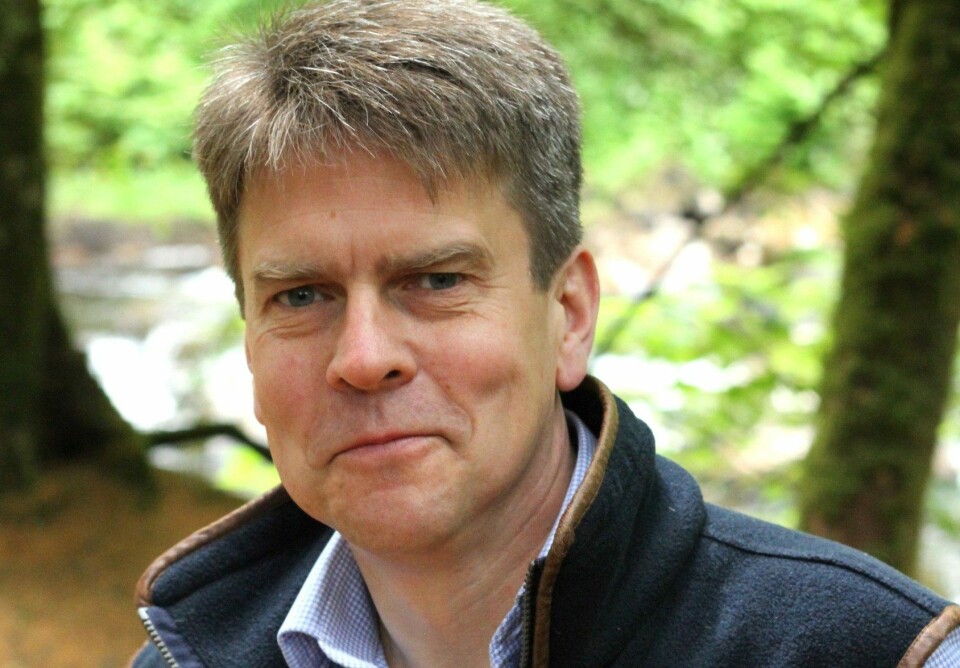
Angling body reels in River Dee Trust chief as new CEO
Edinburgh-based wild fish NGO the Atlantic Salmon Trust (ATS) has announced the appointment of experienced fisheries manager Mark Bilsby as its new chief executive.
He replaces Sarah Bayley Slater, who leaves the post after two and a half years.
Bilsby is leaving his jobs as director for the River Dee Trust and Dee District Salmon Fisheries Board, where he has been since 2005. He also spent a decade as a senior fisheries biologist for the Western Isles Fisheries Trust and, prior to that, working with the National Rivers Authority and a private environmental consultancy.
One of his first responsibilities will be to oversee the Missing Salmon Project, a salmon tagging project which will involve the installation of a 65-mile wide ‘acoustic array’ across the Moray Firth in a bid to determine why Atlantic salmon numbers are dropping so rapidly.
Bilsby said: “There has never been a more exciting time to join this organisation – or a more important time. The wild Atlantic salmon is in serious danger and we have a crucial role to play in safeguarding its future.
“The Missing Salmon Project is the key to protecting the species’ future. It will give us hard information on how seriously the threats identified in our Likely Suspects Framework impact on the salmon’s survival and at which life stage. We now face a race against time to raise the £1 million we need to make the project work – and I look forward to meeting this challenge head on.”
The Missing Salmon Project launched on the River Garry in April, with the Atlantic Salmon Trust saying the study, which will launch in the Moray Firth river system, will provide much-needed data on what is preventing salmon smolts getting out into the sea.
Data gathered by the project will give fishery managers and NGOs the information they need to call for policies that will protect wild salmon, according to groups who have pledged support to the project.
Although the Missing Salmon Project is taking place on the east coast, where there is no salmon farming to blame for the decline of wild fish, the AST has pointed the finger at the industry as a cause of wild fish population declines on some west coast rivers.
In a statement on its website, the AST says it “firmly believes that ICES (the International Council for the Exploration of the Sea) has now provided convincing evidence of both direct impacts and major risks from open cage salmon aquaculture on wild salmon and sea trout stocks, in terms of both sea lice loadings and genetic introgression from escaped farmed fish”.

Meanwhile, a new Salmon Interactions Workstream to provide expert advice on mitigating pressures on wild salmon has been launched by the Scottish Government.
As part of the workstream, a working group has been established to examine, as an initial task, the interactions between farmed and wild salmon, and make recommendations on how any associated impacts can be minimised.
The group will be chaired independently by John Goodlad, who has extensive experience across the sector and is currently Chairman of Fisheries Innovation Scotland, and the membership will come from the aquaculture and wild fisheries sectors, Marine Scotland, the Scottish Environment Protection Agency and Scottish Natural Heritage. Both the Scottish Salmon Producers Organisation and Fisheries Management Scotland have welcomed the group’s establishment and remit.
Evaluate policy
The group will examine the conclusions from the Parliamentary inquiry into farmed salmon in Scotland, due in early autumn. It will also evaluate current Scottish Government policy and advice governing wild / farmed salmon sea lice interactions.
Goodlad said: “I welcome the opportunity to help drive forward discussions between the aquaculture and wild fishery sectors. I am very aware that both [Rural Economy Secretary] Fergus Ewing and [Environment Secretary] Roseanna Cunningham wish to see clear progress, and I already know that both sectors will be engaging with the process in a positive and enabling manner, building on the exchanges during the Parliamentary process over the last few months.”
The population of wild Scottish Atlantic salmon has declined dramatically, by more than 50%, from around 1.25 million in the 1960s to 600,000 in 2016.
The Government’s position is that there is no single cause for this decline and some of the impacts on salmon are inevitably beyond its control. It says it is therefore essential that industry, government and stakeholders work together to manage those pressures which can be controlled.























































